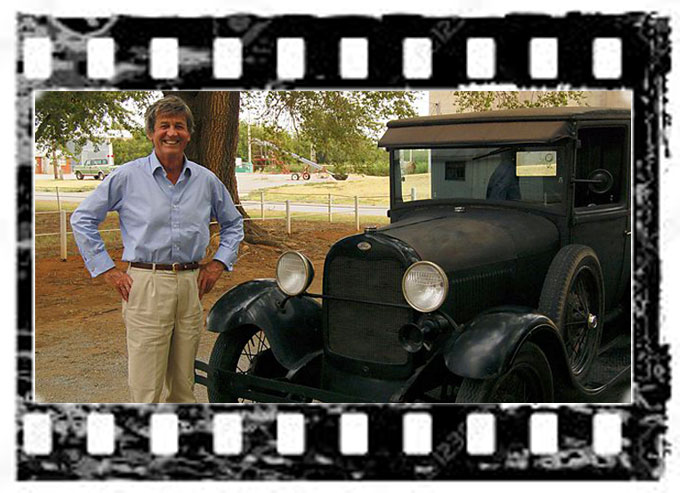The vibrant “Voice of America” BBC documentary on John Steinbeck first broadcast in 2011, featuring historic photo footage and refreshing commentary delivered in ear-pleasing English, has finally made it to YouTube. Melvyn Bragg, the show’s host—a British broadcast personality with working class roots and a passion for John Steinbeck—follows Steinbeck’s footsteps from Salinas, The Grapes of Wrath, and Sea of Cortez to East of Eden, Travels with Charley, and the rebellious American writer’s fight with the New York critics. Filmed on location in the U.S. with a perceptive eye for Steinbeck people, places, and events, the BBC’s survey of the writer’s life and work entertains while educating, in that effortless way English TV does better than, well, anyone. Scholarly Steinbeck aficionados will be pleased with the trio of American Steinbeck experts Bragg interviews intelligently, and at satisfying length: Susan Shillinglaw, Rick Wartzman, and Susan’s spouse William Gilly, a scientist at Stanford’s Hopkins Marine Station. Compared with domestic films about John Steinbeck, the BBC documentary rates five stars, two thumbs up, and an enthusiastic recommendation, especially for teachers, students, and fans of literature increasingly irritated by the sloppy speech of what passes for American journalism. Steinbeck, a lifelong anglophile, loved the landscape, lore, and language of Britain and extolled all three in his writing. Bragg returns the favor, explaining Steinbeck’s relationship to American history and culture with insight, imagination, and stiff-upper-lipness that suits Steinbeck, who liked his wit served dry. Viewing time less than an hour. English impeccable.
- Home
- Books
- Life
- Music & Media
- Places & Events
- Politics & Religion
- April 18, 2024
November 16, 2015 by 1 Comment
About John Steinbeck

Most read American writer of the 20th century. Born in California. Died in New York. Romantic. Realist. Rebel. More about John Steinbeck
FacebookTwitterLinkedInGoogle+ PinterestMySpaceStumbleUponYouTubeStay In Touch
Receive email updates and stay in touch with SteinbeckNow.com
Recent Posts
- New Video from San Jose State University on John Steinbeck: A Writer’s Vision
- Celebrate! Western Flyer Returns to Monterey Bay
- Henry Fonda’s Daughter, Jane Fonda, to Receive 2023 John Steinbeck Award
- A Chance Christmas Dinner with John Steinbeck in 1947
- Saved! John Steinbeck’s Retreat in Sag Harbor
- Celebrating Woody Guthrie’s Grapes of Wrath Connection
- John Steinbeck Haunts Malcolm Harris’s Palo Alto
- San Jose State Hosts Steinbeck Conference
- For John Steinbeck, the Rains in Pajaro Hit Home
- Photo Inspires Sumi Ink Portrait by Eugene Gregan


This production notes that it was Steinbeck’s desire at the outset of his migrant worker research to record what he observed among the migrants and their challenges without passion or prejudice as a diligent reporter, but it was the research experiences he had that fueled his anger and passion causing him to lose objectivity. I say I know Steinbeck’s individual psychological “type” very well, and in fact, he never lost the ability to step back and observe as a dedicated reporter. He was a non-telological or “is” thinker as described in “The Log From the Sea Of Cortez.” The BBC film producer was dead wrong on that conclusion. No type of human–an Introverted Sensation/Thinking Type with Sensation as the primary function and Thinking (an ISTP in Myers-Briggs lingo) as the auxiliary–can match this type in objective observation.